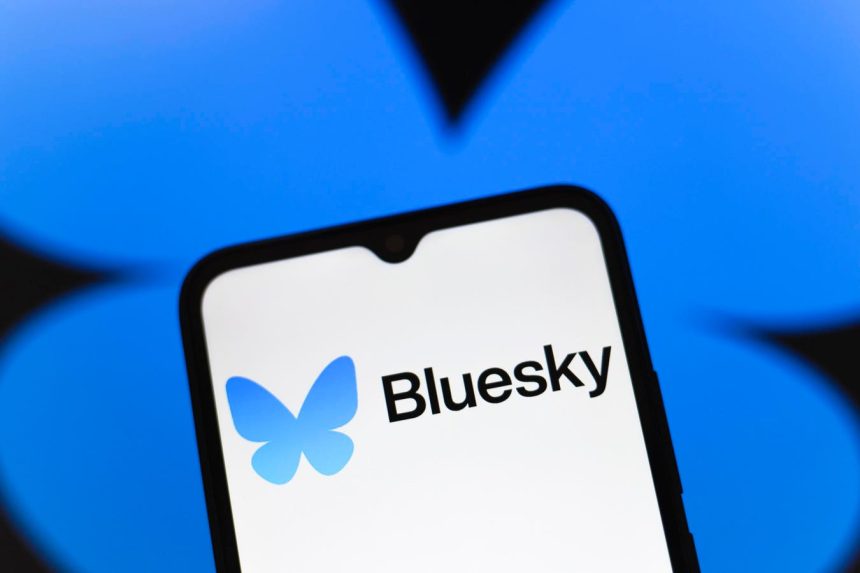Bluesky, a burgeoning social media platform, is not simply an alternative to X (formerly Twitter); it embodies a revolutionary approach to online social interaction. Its foundation lies in open-source technology, empowering users with control over their data and enabling seamless sharing across various platforms. This vision is fueled by the “Free Our Feeds” campaign, a collaborative effort between Bluesky and several public interest technology organizations. Their aim is to establish an independent, non-profit foundation dedicated to expanding the adoption of the AT Protocol, the open-source infrastructure upon which Bluesky is built. This initiative represents a significant step towards a decentralized social media landscape, contrasting sharply with the centralized control exercised by tech giants.
The genesis of Bluesky can be traced back to 2019, when Twitter co-founder Jack Dorsey envisioned a decentralized social media ecosystem. This vision led to the development of the AT Protocol (Authentic Transfer), a universal language enabling interoperability between different social media platforms. While initially a Twitter-backed project, the AT Protocol’s progress stalled after Elon Musk’s acquisition. Subsequently, the Bluesky team, led by CEO Jay Graber, leveraged the protocol to launch the Bluesky platform in 2023, reigniting the pursuit of a decentralized future for online social interaction. The “Free Our Feeds” campaign now seeks to ensure the protocol’s survival and widespread adoption.
The “Free Our Feeds” campaign is not merely supporting Bluesky; it’s actively fostering a competitive landscape. Their plan involves crowdfunding $4 million as an initial step towards a $30 million goal over the next three years. These funds will support the establishment of the independent foundation and, crucially, the development of a second social media service built on the AT Protocol. While seemingly counterintuitive, creating a competitor to Bluesky serves a strategic purpose: guaranteeing the protocol’s independence. This ensures users have an alternative platform should Bluesky succumb to corporate pressures or limit developer access, safeguarding against a repeat of the issues that arose from Musk’s takeover of Twitter.
The envisioned foundation will function as a bulwark against centralized control, a recurring concern in the social media landscape. It will operate independently from Bluesky, with its own team of engineers collaborating with Bluesky engineers on the development of the new social media service. The foundation will also allocate resources to fund external developers building upon the AT Protocol, further diversifying the ecosystem. This approach is designed to create a resilient and adaptable social media landscape, less susceptible to the whims of individual owners and more responsive to the needs of its users. This structure mitigates the risk of a single entity controlling the protocol, ensuring its longevity and open access, even if Bluesky’s trajectory deviates from its original mission.
The foundation’s governance will be overseen by a group of “custodians,” prominent figures in the tech and advocacy spheres, including Mozilla Foundation executives, the Avaaz founder, and the executive director of the Social Web Foundation. This esteemed group will steer the foundation’s strategic direction, ensuring its commitment to the principles of decentralization and user empowerment. Their involvement lends significant credibility to the project, signaling a serious commitment to challenging the established order of centralized social media control. An open letter endorsing the project, signed by notable figures like Wikipedia founder Jimmy Wales, actor Mark Ruffalo, and author Shoshana Zuboff, further amplifies the initiative’s momentum and broad support.
The ultimate ambition of the “Free Our Feeds” campaign is to democratize the social media landscape, freeing it from the influence of billionaire owners like Elon Musk and Mark Zuckerberg. The repercussions of Musk’s Twitter acquisition, including user exodus, advertiser boycotts, and compromised safety practices, underscore the risks of centralized control. Similarly, Zuckerberg’s abrupt termination of Meta’s fact-checking program highlights the power wielded by corporate leaders over these platforms. The recent surge in Bluesky’s user base, nearly doubling to 25 million since October, demonstrates a growing appetite for alternative social media platforms that prioritize user control and data privacy. The campaign’s creative promotional tactics, including cryptic posters in San Francisco and Brussels, have further fueled anticipation and interest in this emerging movement. The hope is to create a future where users have more agency over their online social experiences, unburdened by the capricious decisions of powerful individuals or corporations. This movement, likened to a “rebel alliance” against tech giants, represents a pivotal moment in the evolution of social media. Its success hinges on its ability to foster a thriving ecosystem of interconnected, user-centric platforms, ultimately shifting the balance of power from corporations back to the individuals who shape and populate these digital spaces.



